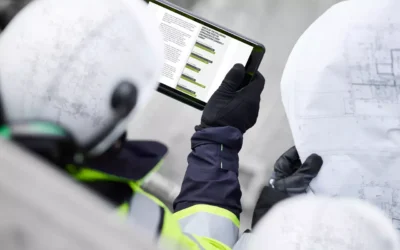Despite building information modeling (BIM) having been used in construction over the last 20 years, it’s only recently that this 3D modeling process has been gaining more of a foothold. In fact, contractors view BIM as a top business-critical technology that will meaningfully impact their companies in over the next couple of years.
With this upswing in its adoption — and increasing owner requirement that it be used for their projects — the demand for experts in all things BIM is rising. Construction companies are realizing it involves more than just knowing how to use the software to produce 3D models. It’s also about understanding BIM as a process and being able to analyze the data within the model.
If you’re among those planning to incorporate BIM into your capital projects, have you thought about who will guide the process and ensure you’re getting the most out of it? The question of whether you need such a dedicated BIM specialist may not have a clear answer at first. But you do have several options to consider.
Involve the broader project team in the BIM workflow
Building information modeling isn’t reserved just for the architects, engineers and designers at the beginning stages. Because its process aligns so well with the start-to-finish workflow of construction projects and beyond, it can effectively involve the entire team, from estimating and scheduling to procurement and commissioning.
In fact, you may have project team members who already have working knowledge of BIM as it pertains to their job function. In that case, you might decide to forgo having a dedicated expert. Tap these members to share their insights with other staff in their respective disciplines who may be new to the process and/or the technology. Having in-house BIM-proficient staff can work in your favor when bidding on capital projects with a BIM requirement.
But what if there’s a lack of direct BIM experience on the team? That’s not necessarily a detriment if your team has other skills that BIM actually draws upon. For example, can everyone interact and communicate with each other effectively, even across disciplines? Are they comfortable working with data? Are they open to learning new software? Given that BIM requires a shift in how things have normally been done, can they adapt to change if it means improved efficiency? As a bonus, do they have experience or familiarity with digital 3D models?
Designate a person already on the project team as your BIM specialist
Beyond grooming a BIM-proficient team, let’s say you do decide to have a BIM specialist or manager oversee the process throughout the construction life cycle, in addition to team oversight, but you prefer to hand pick someone on the inside rather than looking elsewhere.
What do you look for? In addition to the above skills, think of the person who already has deep knowledge of the BIM process as well as the software used to create the model and link its associated data. Beyond just having this knowledge, they should be comfortable interacting with the digital model itself. Because everything is based on the model, it could very well be someone who knows architecture or engineering given the adjustments to the model resulting from design changes as well as clash detection and resolution. Armed with demonstrated collaborative skills, they can be the internal champion for all things BIM within the broader project team.
Hire an outside expert who specializes in BIM
Even if you have internal BIM experience on staff, you might feel like your construction company could benefit from some outside guide who’s successfully managed capital projects incorporating building information modeling. Especially if you don’t have strong internal BIM expertise, this specialist can present on your behalf when discussing the BIM model with the owner and other stakeholders. They also can be the point person to ensure project team members understand how to access and analyze the information within the model.
And it doesn’t have to be just one person. You can choose to form a small team for a particularly large complex project, with each specialist taking on a primary function of BIM, such as design/modeling, data analysis or workflow management.
One thing you may encounter is that there aren’t a lot of BIM specialists yet. Whether they’re referred to as a specialist, expert, manager or coordinator, this job category is quite new to the industry. So, where do you find them? Try online industry job boards, as well as some of the more mainstream boards. One more angle to consider: If your primary interest in a specialist is to onboard your staff about the “how-tos” and benefits of BIM, why not take advantage of training provided by the company providing your BIM software?
Over time, as BIM becomes more widespread within the industry, the question may change to if there will still be a need for dedicated specialists. It’s too soon to tell for sure, and there’s no consensus on the direction, but there are several possible scenarios. The role may become more defined over time as the BIM industry matures and experts get even more experience under their belt. It may split into several highly specialized functions that all fall under a broader specialist or expert category. Or it may eventually be less of a specialty as construction companies get more familiar with the process, making interaction with BIM models second nature.
No matter how the role of these specialists unfolds, BIM itself is here to stay. If you’re considering 3D modeling software options, we invite you to take a look at InEight Model. Designed by construction professionals for construction professionals, our BIM solution connects your model with its vast amount of functional data so your entire team can leverage its value throughout the life cycle of your capital projects. And we offer the support you and your team need to feel confident using it. Interested in learning more? Schedule a demo to see how Model works.



